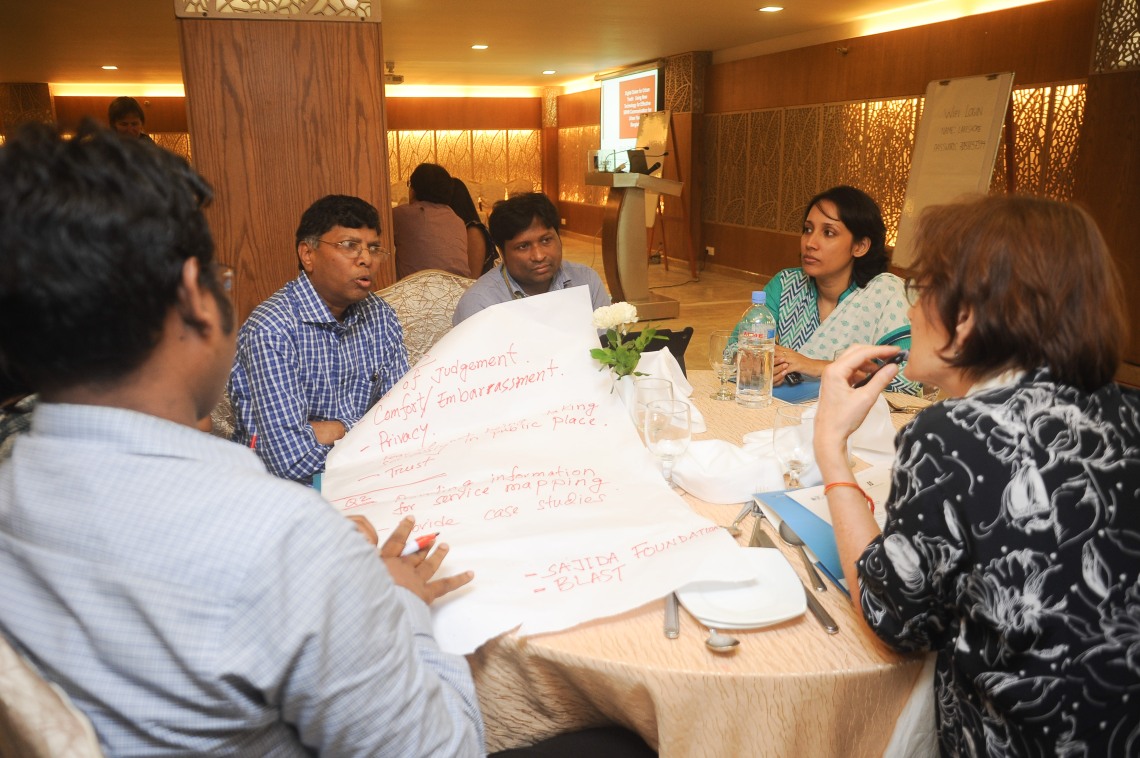
The Centre for Gender, Sexual and Reproductive Health and Rights at BRAC University, in partnership with University of Amsterdam (UvA) are excited to announce the launch of an innovative research project, Digital Sister for Urban Youth: Using New Technology for Effective SRHR Communication for Urban Youth of Bangladesh (Digital Sister in short).
Funded by the prestigious NWO-WOTRO Science for Global Development programme, the project is joining forces with ground-breaking technology company, Maya.com.bd, which developed the first ever anonymous online and app-based help service, Maya Apa that provides tailor-made solutions in areas of medical, legal, and psychosocial problems using the digital platform in matters of hours. The support service is free for all users, of any age.
Because of the anonymity feature of Maya Apa, users from all around the country (and Bangladeshis living abroad), send highly personal problems which are otherwise kept secret in a society of fear and stigma, especially around the issues of sexual reproductive health, mental well-being, and bodily rights. The Digital Sister project aims to understand the realities and challenges associated with sexual rights and reproductive health (SRHR) of especially young people in urban areas by analysing questions from Maya Apa and using it as an effective communication tool for the youth of Bangladesh.
What makes this research unique is its aim to provide insight on a population otherwise overlooked. With an overwhelming amount of public health research on poor rural populations, and an impressive track record in implementation of family planning across the country, there is now a growing demand for understanding SRHR-related behaviors of Bangladesh’s growing middle-income population – particularly urban-based adolescents and young adults.
According to a report by the POLICY project, Bangladesh’s adolescent population (ages 15–24) was estimated at about 28 million in 2000, and is projected to increase by 21 percent to reach 35 million by 2020. This is also the first generation of Bangladeshis to have access to affordable technological devices such as smartphones, computers, with built in Internet services. In 2013, there were over 29 million Internet users and over 100 million mobile subscribers, making Bangladesh one of the most lucrative nations for ICT-based growth and development.
Yet with a lack of SRHR education available at school, adolescents appear to be poorly informed with regard to their own sexuality, physical well-being, health, and bodies. Whatever knowledge they have been able to gather is disjointed and confused. Moreover, in addition to limited sex education, the taboo-nature of such issues and inhibited cultural attitudes towards sex also contribute to this ignorance.
That’s where Maya Apa comes in – the anonymous nature of the app has subsequently helped to remove the cultural stigma associated with asking their burning questions, decreasing the barriers that keep people from seeking access to information they crucially need. So far the platform has answered nearly 100,000 questions, with a vast majority coming from the 15-30 age group on a wide range of issues pertaining to SRHR.
The questions that have accumulated on the platform serve as an excellent database to study the SRHR-related behaviors and concerns of Bangladesh’s young people. By examining the questions, the researcher will be able to better understand the needs of this growing urban population segment. The projected strives to identify and address the gaps by providing recommendations to further improve Maya Apa, or even develop new communication tools to supplement the digital platform and other potential adolescent health policy implications that arise as a result of this research.
This blog was written by Anushka Zafar, communications specialist in the Digital Sister Project and communications and knowledge manager at BRAC School of Public Health.
3 Comments